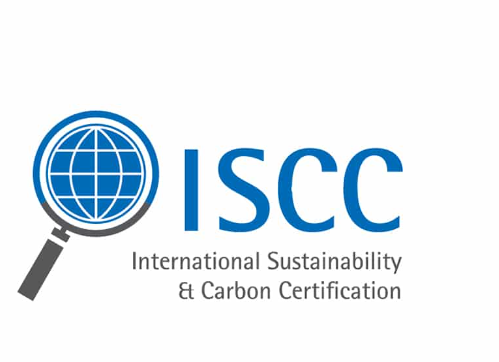The ISCC-International Sustainability and Carbon Certification has emerged as a trusted global standard for ensuring social, economic, and environmental sustainability in the production of biomass-based products. By obtaining this certification, companies can showcase their dedication towards responsible sourcing, efficient resource utilization, and contributing positively to a greener future.
So what exactly is ISCC? How does it work? And why should organizations consider becoming certified? Join us as we delve into the intricacies of ISCC certification and explore its numerous benefits for both businesses and the planet. Let’s embark on this journey towards a more sustainable future together!

How Does ISCC Work?
ISCC, also known as the International Sustainability and Carbon Certification, is a globally recognized certification system that promotes sustainability in various industries. But how exactly does ISCC work? Let’s delve into the details.
At its core, ISCC is designed to ensure that companies adhere to certain sustainability criteria throughout their supply chains. It covers a wide range of sectors including agriculture, bioenergy, chemicals, food and feed manufacturing, and more.
The process starts with an initial assessment of the company’s operations against the ISCC requirements. This involves evaluating factors such as greenhouse gas emissions, land use practices, social aspects like labor rights and fair trade principles.
Once certified by ISCC, companies are required to undergo regular audits to verify compliance with these standards. This helps maintain credibility and ensures ongoing commitment towards sustainable practices.
Furthermore, ISCC employs a mass balance approach which enables traceability of certified materials along the entire supply chain. This means that products can be tracked from their origin through each step of processing until they reach consumers.
By implementing this comprehensive system of certification and monitoring, ISCC plays a crucial role in driving sustainability across industries worldwide. It encourages responsible sourcing practices while promoting transparency and accountability at every stage.
Benefits of ISCC Certification
Obtaining an ISCC certification can bring a myriad of benefits to businesses and organizations committed to sustainability and carbon reduction. Let’s explore some of the key advantages that come with this certification.
One major benefit is enhanced market access. With an ISCC certification, companies gain credibility in the global marketplace as they demonstrate their commitment to sustainable practices. This opens doors for them to enter new markets and attract environmentally conscious customers who prioritize products or services from sustainable sources.
Furthermore, by achieving ISCC certification, businesses can improve their brand reputation. Consumers today are increasingly aware of environmental issues and seek out companies that align with their values. The certification acts as evidence that a company meets rigorous sustainability standards, leading to increased trust among consumers.
Moreover, having an ISCC certificate allows organizations to participate in government programs and initiatives aimed at promoting sustainability. Governments around the world are implementing policies that incentivize businesses operating sustainably, providing opportunities for financial support or tax benefits.
Additionally, obtaining an ISCC certification enables companies to better manage risks associated with climate change regulations and potential reputational damage due to unsustainable practices. By adhering to strict criteria set by the certification body, organizations can ensure compliance with regulatory requirements while mitigating any negative impact on their image.
Lastly but certainly not least, there is also a cost-saving aspect associated with becoming ISCC certified. By adopting more efficient processes and reducing emissions through sustainable practices such as waste management or energy consumption optimization, businesses can lower operational costs over time.

Future of ISCC and its Impact on Sustainability Efforts
The future of ISCC holds great promise for the sustainability efforts worldwide. As more and more industries recognize the importance of reducing their carbon footprint, ISCC certification is expected to become even more relevant and sought after.
With stricter regulations being put in place by governments across the globe, organizations will have no choice but to adopt sustainable practices in order to remain competitive. This is where ISCC comes into play. By providing a credible and internationally recognized certification, it enables companies to demonstrate their commitment towards sustainability.
Furthermore, as consumer awareness about climate change and environmental issues continues to grow, there will be an increased demand for products that are produced using sustainable methods. With an ISCC certification, businesses can tap into this growing market segment and gain a competitive edge.
In addition to its impact on individual companies, the widespread adoption of ISCC has the potential to drive positive change at a larger scale. By encouraging industries to implement sustainable practices throughout their supply chains, it can contribute significantly towards achieving global sustainability goals.
The future of ISCC looks bright as it plays a crucial role in driving sustainability efforts across various sectors. It not only benefits individual organizations but also contributes towards creating a greener and more environmentally conscious world.
Conclusion
In today’s world, where the need for sustainable practices has become more important than ever, organizations across various industries are seeking ways to reduce their carbon footprint and promote responsible business operations. The International Sustainability and Carbon Certification (ISCC) is a crucial tool in this endeavor.
ISCC provides a comprehensive framework that enables businesses to demonstrate their commitment to sustainability and achieve certification for their sustainable production processes. By adhering to ISCC standards, companies can ensure transparency in their supply chains, reduce greenhouse gas emissions, conserve natural resources, and contribute towards a greener future.
The benefits of obtaining ISCC certification are numerous. Not only does it enhance an organization’s reputation as an eco-friendly enterprise, but it also opens up new market opportunities by meeting the growing demand for sustainably produced goods. Moreover, ISCC certification helps businesses comply with regulatory requirements related to renewable energy usage and carbon reduction targets.
Looking towards the future, it is clear that sustainability efforts will only continue to gain momentum globally. As governments enact stricter regulations regarding climate change mitigation and consumers increasingly prioritize environmentally friendly products/services; having an internationally recognized accreditation like ISCC will become even more critical for businesses aiming not just at compliance but also at differentiating themselves from competitors.
